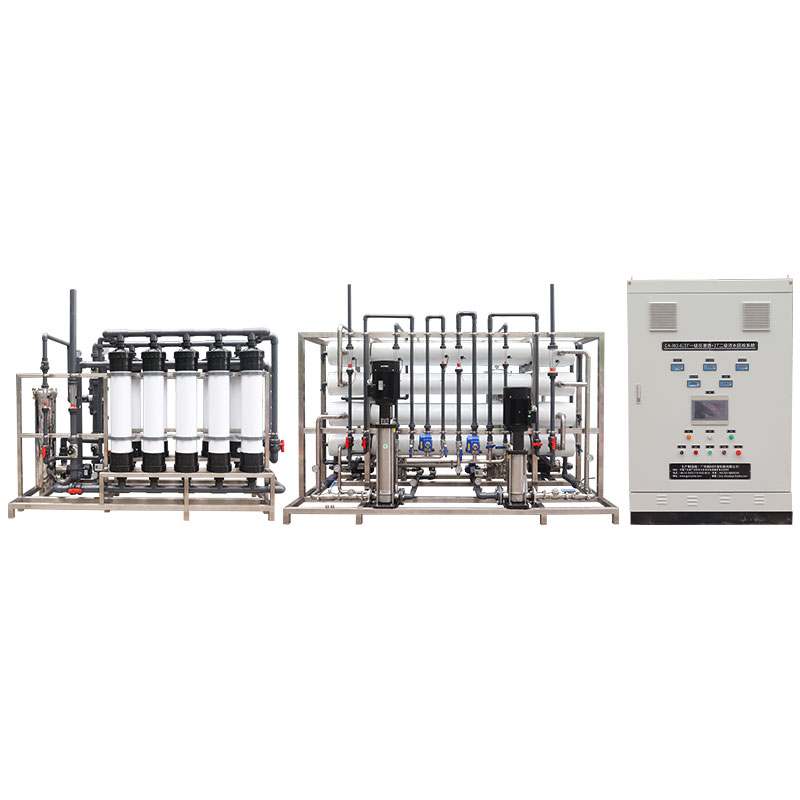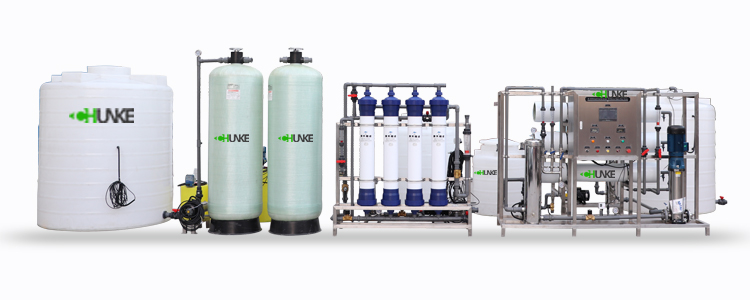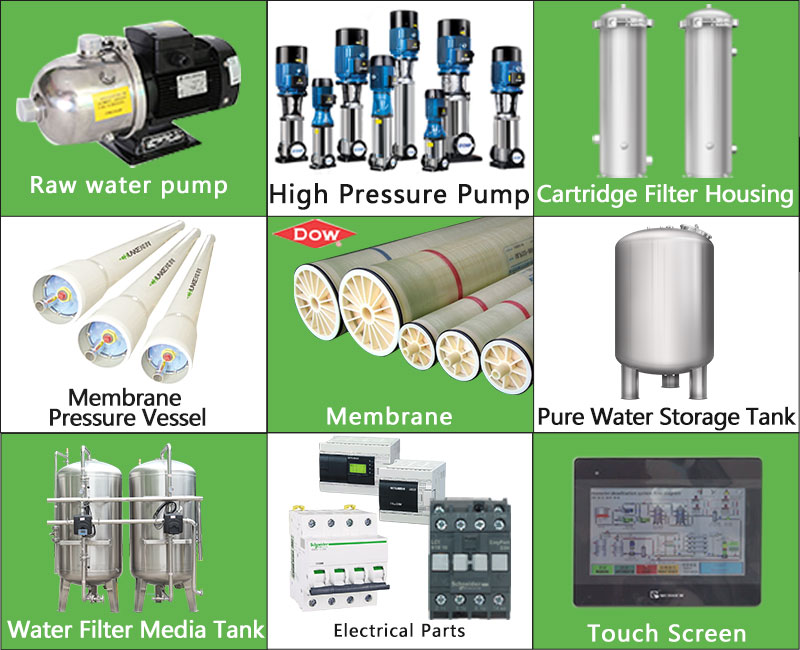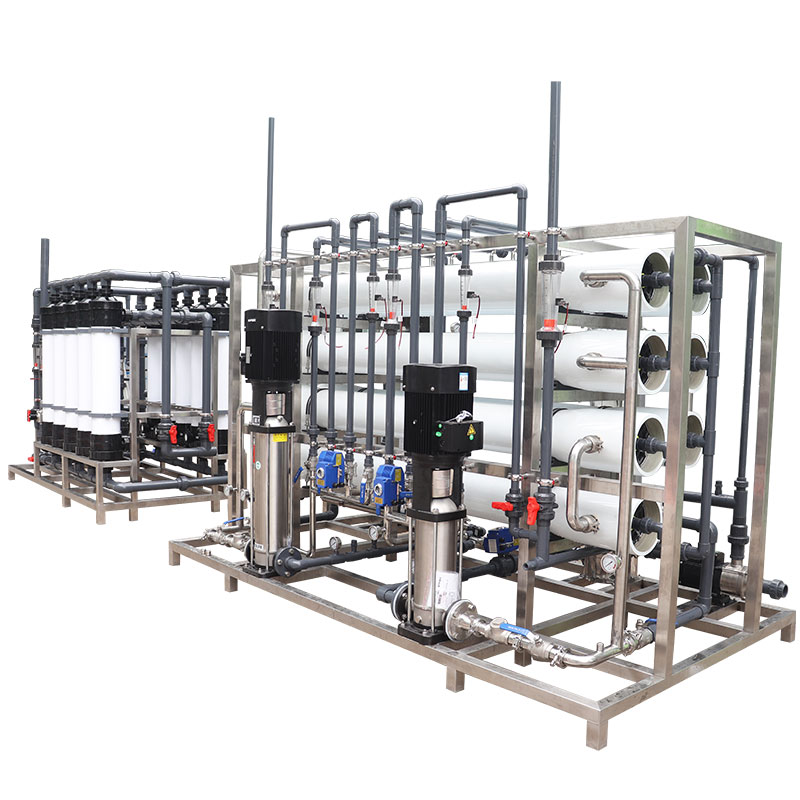What is the healthiest tap water filter?
As people pay more and more attention to the safety and health of drinking water, the popularity of tap water filters in households continues to rise. However, there are a wide variety of filters on the market, and consumers are often confused when choosing.
So, what kind of tap water filter is the healthiest choice? This article will discuss in detail the different types of filters, their functions and health benefits.

What are the common types of tap water filters?
Before choosing the healthiest tap water filter, we first need to understand several common types on the market and how they work.
1.1 Activated carbon filter:
Activated carbon filter is one of the most common household water filters. Its working principle is to remove chlorine, organic matter, odor and some heavy metals in water through the powerful adsorption capacity of activated carbon. Activated carbon filters are divided into granular activated carbon and block activated carbon. The former has a fast adsorption speed and the latter has a high adsorption efficiency.
Advantages:
● Can effectively remove odor and odor substances.
● Low maintenance cost and easy to use.
Disadvantages:
● Limited removal effect on bacteria, viruses and dissolved solids.
● The filter element needs to be replaced regularly, otherwise it will become a source of pollution.
1.2 Reverse Osmosis (RO) Filter:
The reverse osmosis filter uses the principle of semi-permeable membrane to separate water molecules from impurities through pressure. It can effectively remove dissolved solids, heavy metals, bacteria and viruses in water. It is one of the best purification technologies currently.
Advantages:
● Excellent purification effect, can remove most pollutants.
● High water quality and pure taste.
Disadvantages:
● Large amount of wastewater is generated and water resource utilization rate is low.
● The system is complex and the installation and maintenance costs are high.
1.3 Ultrafiltration (UF) Filter:
UF filters remove suspended matter, bacteria and some viruses in water through microporous membranes. The pore size is generally around 0.01 microns. Unlike reverse osmosis, ultrafiltration does not remove dissolved minerals in water.
Advantages:
● Retain beneficial minerals and good water taste.
● Small amount of wastewater and high water resource utilization rate.
Disadvantages:
● Limited removal effect on dissolved pollutants.
● Requires regular cleaning of the filter membrane, and the maintenance cost is high.
1.4 Ultraviolet (UV) sterilizer:
UV sterilizer uses ultraviolet light to irradiate the water flow to kill bacteria and viruses in the water. It is usually used in combination with other filters to provide comprehensive water quality assurance.
Advantages:
● Can effectively kill pathogenic microorganisms in water.
● Does not change the chemical composition and taste of water.
Disadvantages:
● Cannot remove dissolved pollutants and suspended solids.
● The lamp life is limited and needs to be replaced regularly.

Criteria for choosing the healthiest filter
In addition to considering its purification effect, the following factors need to be considered comprehensively when choosing the healthiest tap water filter:
2.1 Water quality:
Understanding the water quality of local tap water is the first step in choosing a filter. If the water contains high levels of dissolved solids or heavy metals, a reverse osmosis filter may be the best choice; if the main concern is bacteria and viruses in the water, ultrafiltration or UV sterilizers are more suitable.
2.2 Health Benefits:
Different filters perform differently in retaining beneficial minerals and removing harmful substances. Ultrafiltration filters retain minerals, while reverse osmosis filters remove most dissolved substances. If you want to retain minerals in your drinking water, ultrafiltration may be healthier.
2.3 Maintenance Costs:
The lifespan and maintenance costs of the filter are also important factors to consider. Activated carbon and UV sterilizers have lower maintenance costs, while reverse osmosis and ultrafiltration systems require regular replacement of filter cartridges and cleaning of filter membranes.
2.4 Ease of Use:
Ease of use includes the complexity of installation, ease of operation, and space occupied. Countertop and faucet filters are easy to install, while reverse osmosis systems usually require professional installation.

What is the healthiest tap water filter?
The healthiest tap water filter:
● Composite filter,
● Reverse osmosis + mineralization filter,
● Ultrafiltration + activated carbon.
Based on the above analysis, different types of filters have their own advantages and disadvantages. Considering the purification effect, health benefits and convenience of use, these filters are widely considered to be healthier choices:
3.1 Composite filter:
The composite filter combines multiple filtering technologies, such as activated carbon, ultrafiltration and ultraviolet disinfection, which can completely remove harmful substances in the water while retaining beneficial minerals. This type of filter is suitable for families with high water quality requirements.
3.2 Reverse osmosis + mineralization filter:
In order to make up for the lack of mineral removal by reverse osmosis filters, some reverse osmosis systems have added mineralization filters, which can purify water while replenishing minerals in appropriate amounts, making the water quality closer to natural water. This combination is suitable for families who want to drink high-purity and mineral-containing water.
3.3 Ultrafiltration + activated carbon:
The combination of ultrafiltration and activated carbon can effectively remove suspended matter, bacteria, organic matter and some heavy metals in water while retaining minerals in water. This type of system has a low maintenance cost and is suitable for areas with good water quality.

User evaluation and use experience:
Choosing the healthiest tap water filter should not only look at technical parameters, but also refer to user evaluation and use experience. Through investigation, it is found that the following products have received high evaluations in the market:
4.1 CHUNKE reverse osmosis water purifier:
CHUNKE reverse osmosis water purifier has a high satisfaction among users due to its efficient purification ability and reliable quality. The design of its mineralized filter element makes the purified water not only pure, but also retains an appropriate amount of minerals, suitable for long-term drinking.
4.2 3M ultrafiltration water purifier:
3M ultrafiltration water purifier is widely praised for its efficient filtering ability and simple operation. Its mineral retention characteristics make the water taste good and the maintenance cost low, making it an ideal choice for home use.
4.3 Everpure activated carbon filter:
Everpure activated carbon filter is deeply loved by users for its powerful adsorption capacity and excellent water purification effect. It has high filtration accuracy, can effectively remove odors and organic matter, is simple to maintain and easy to use.
Summary
Among the many tap water filters, choosing the healthiest filter requires comprehensive consideration of factors such as water quality, health benefits, maintenance costs and ease of use. The combination of composite filters, reverse osmosis + mineralization filter elements, and ultrafiltration + activated carbon has been widely praised in the market and has become the first choice for many families. When purchasing, users should combine their own needs and water quality characteristics to choose the most suitable product to ensure the safety and health of drinking water.






